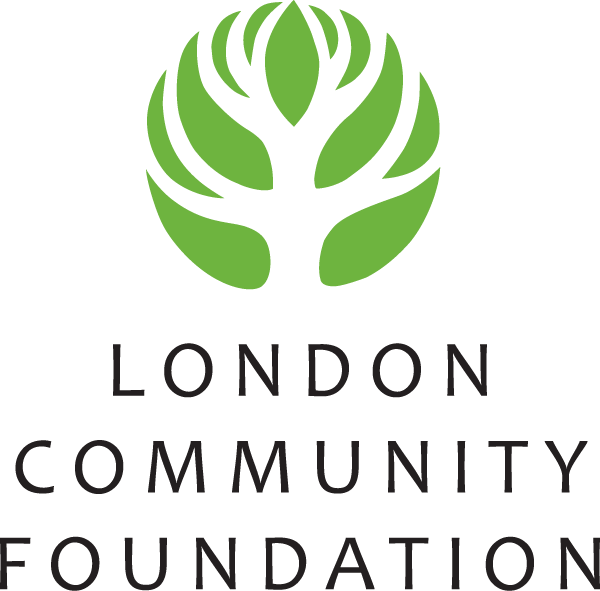TAP Supports Youth in Building a Bridge to Adulthood
TAP Supports Youth in Building a Bridge to Adulthood
June 13 2019
Dr. Javeed Sukhera, Physician Lead, Child and Adolescent Mental Health; Jill Lynch, Project Facilitator, Transition Age Project; Scarlett Davidson, LHSC Youth Mental Health Advisory Council member; and Julie Trpkovski, Vice President, Mental Health and Emergency Services. (Source: LHSC)
Between 10 and 20% of Canadian youths are affected by a mental illness or disorder. With wait times for service ranging from a couple of months to over a year, the need for quality, affordable, and accessible mental health care services is apparent now more than ever.
In 2015, the London Health Sciences Foundation received a $250,000 Community Vitality Grant from LCF for the Transition Age Project (TAP). TAP was born out of a partnership between London Health Sciences Centre (LHSC), Canadian Mental Health Association (CMHA), Youth Opportunities Unlimited (YOU), mindyourmind (MYM) and Addiction Services Thames Valley (ADSTV) and is dedicated to improving access to mental health resources for youths between the ages of 16 and 25.
These individuals, moving from adolescence to young adulthood, are often referred to as transitional age youth. Helping them through this period of intense change is critical for the prevention of mental health and addiction issues. However, the mental health care system for youth is fragmented and challenging to navigate.
TAP’s first pilot project, Cornerstone Counselling, concluded this year on May 31 and saw close to 500 patients while it was active, temporarily filling a much needed gap in service.
“I had run out of options to address my anxiety and depression,” says an anonymous university student and patient. “Through Cornerstone’s free therapeutic services, I was able to learn techniques, strategies, and root causes associated with a disease that burdened me every day. It was a life-saver.”
The Community Vitality Grant also allowed for the creation of TAP’s Youth Mental Health and Addictions Council (YMHAC), a committee including 10 to 12 youths that provide a platform for youth engagement in mental health services throughout London.
“All of us at YMHAC believe and stand by the idea that we are speaking for the youth and giving youth the chance to create change,” says YMHAC member Rachel Skedgel. “And all of us, if given the opportunity, will produce outstanding results.”
Along with input from the YMHAC, the lessons learned during the Cornerstone’s three year tenure will be vital to permanently improving mental health care services going forward.
“We want to build on what we learned and continue working with our community partners to develop a comprehensive mental health care hub for youth,” says Lori Ann Horley, Manager, Annual Giving at London Health Sciences Foundation. “Cornerstone Counselling revealed many needs within the community. A new overarching program will aim to address them.”
LCF’s Community Vitality Grant program has been supporting projects that address London’s most pressing needs for years and building collaborative relationships with and among organizations in our community is an important aspect
“LCF can take pride in knowing that TAP has built and fostered relationships that have made our community stronger,” says Lori Ann Horley. “As these collaborations evolve and grow, so will the services available to youth.”
Learn more about other mental health initiatives supported by LCF’s Community Vitality Grant Program:
Recovery Centre London
Bridging Community & Campus Services to Support Students’ Mental Health
Family Service Thames Valley- Transforming the System Response to Mental Health

